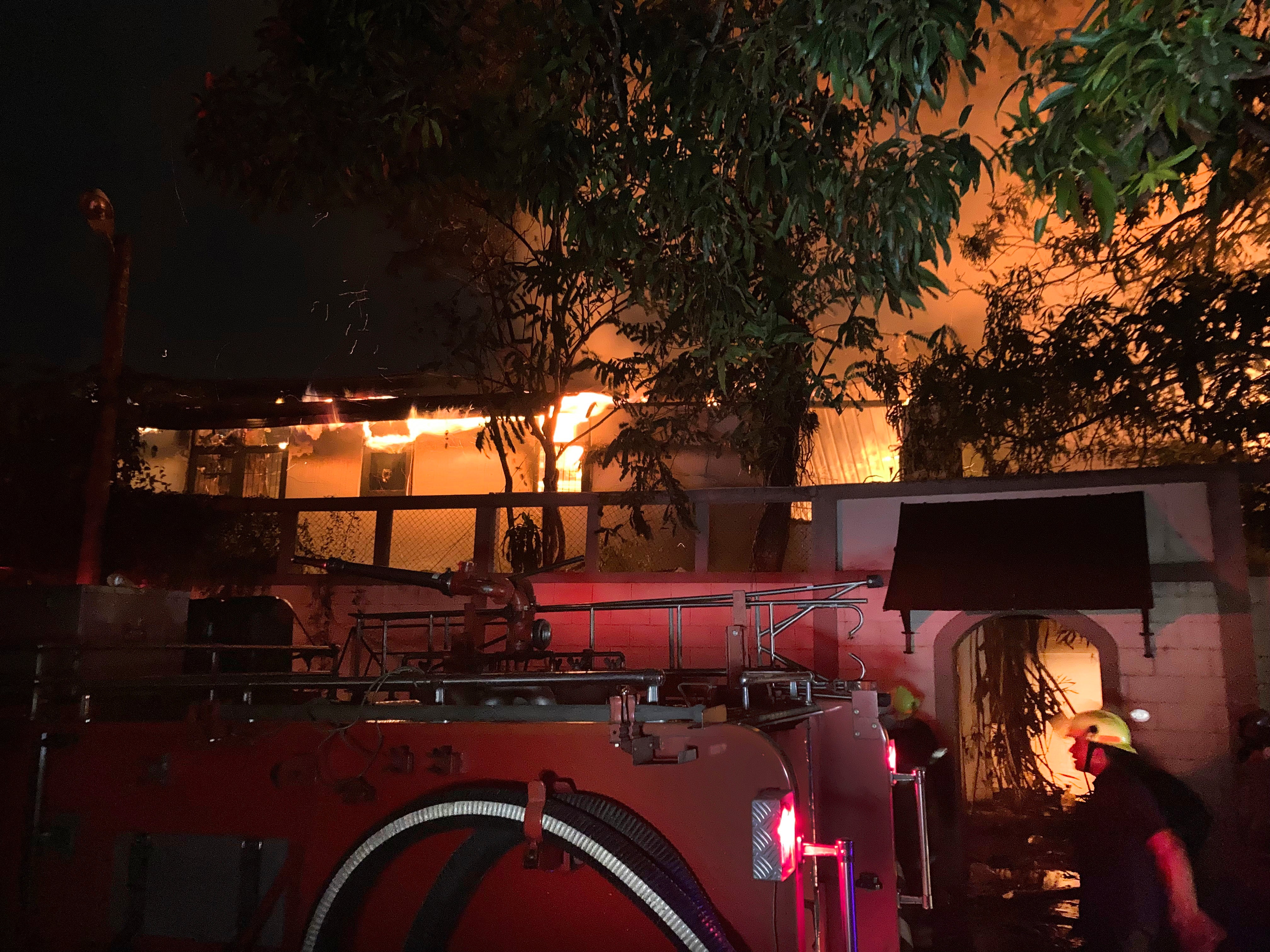Sri Lankan prime minister’s house set on fire amid mass protests
Ranil Wickremesinghe agrees to resign as PM hours earlier amid vast demonstrations

Your support helps us to tell the story
From reproductive rights to climate change to Big Tech, The Independent is on the ground when the story is developing. Whether it's investigating the financials of Elon Musk's pro-Trump PAC or producing our latest documentary, 'The A Word', which shines a light on the American women fighting for reproductive rights, we know how important it is to parse out the facts from the messaging.
At such a critical moment in US history, we need reporters on the ground. Your donation allows us to keep sending journalists to speak to both sides of the story.
The Independent is trusted by Americans across the entire political spectrum. And unlike many other quality news outlets, we choose not to lock Americans out of our reporting and analysis with paywalls. We believe quality journalism should be available to everyone, paid for by those who can afford it.
Your support makes all the difference.The prime minister of Sri Lanka’s home has been set on fire during a day of mass unrest over the country’s severe economic crisis, just hours after he announced plans to resign.
Thousands of protesters had earlier breached police barricades to storm the presidential palace in Colombo on Saturday, with Ranil Wickremesinghe announcing he would step down as PM shortly afterwards.
The future of Sri Lanka’s president Gotabaya Rajapaksa initially remained unclear, but as news of the fire at Mr Wickremesinghe’s private residence broke, Sri Lanka’s parliamentary speaker announced that the president had also agreed to resign – and intends to step down on Wednesday.
Unrest between demonstrators and police is reported to have intensified outside the prime minister’s family home in the hours after the the presidential palace was stormed, and footage carried by the BBC and Indian broadcaster NDTV showed flames and smoke emanating from the compound.
The office of Mr Wickremesinghe told the Associated Press that the protesters forced their way into his home on Saturday evening. It was not immediately clear whether he was inside at the time of the attack.
Mr Wickremesinghe uses his official residence only for official business, and lives with his family in the home targeted by demonstrators, known as Fifth Lane, which was built by his father Esmond Wickremesinghe.

Mr Rajapaksa is reported to have fled the palace hours before it was swarmed by protesters, who were filmed feasting in the palace’s kitchens and swimming in the pool.
The president was taken to safety after demonstrators amassed outside the palace gates, and he is being protected by a military unit, a senior defence source told Agence France-Presse.
His whereabouts are currently unknown, and according to the BBC there are rumours that he is attempting to flee the country “at any moment”.
Mr Wickremesinghe – who was appointed by the president in May, to a role he has held five times previously without ever completing a full term – said earlier that he would resign only when all parties agree on a new government, angering crowds near his home demanding he step down immediately.
“Today in this country we have a fuel crisis, a food shortage, we have the head of the World Food Programme coming here and we have several matters to discuss with the IMF. Therefore, if this government leaves there should be another government,” Mr Wickremesinghe said.
In a dramatic resumption of anti-government protests which began in March, people from across the island nation of 22 million boarded overcrowded buses and trains to descend upon Colombo on Saturday to call on the president to quit.
Sri Lankan police had attempted to use tear gas and water cannon to disperse the crowds, and a curfew was imposed on Friday night only to be withdrawn hours later. One defence official suggested the measure – branded illegal by lawyers and opposition politicians – had only “encouraged more people to get on the streets in defiance”.
Sri Lanka is on the verge of bankruptcy as it endures its worst economic crisis since gaining independence from British rule in 1948.
The country is suffering a severe foreign exchange shortage, which saw it default on its foreign debts for the first time in history in May and has limited essential imports of fuel, food and medicine – causing crippling shortages of supplies for residents.
Shortly after taking office, Mr Wickremesinghe warned that the country’s “broken” economy was “going to get worse before it gets better”, and the following month inflation hit 54.6 per cent.
While the nation’s finances took a hit as a result of the coronavirus pandemic and 2019 Easter bombings, many experts say that the current economic collapse is the result of mismanagement, including a lack of focus on exports, the build-up of vast debts, and large tax cuts.
“It really is veering quickly into a humanitarian crisis,” warned Scott Morris, a senior fellow at the Center for Global Development in Washington.
Additional reporting by agencies


Join our commenting forum
Join thought-provoking conversations, follow other Independent readers and see their replies
Comments